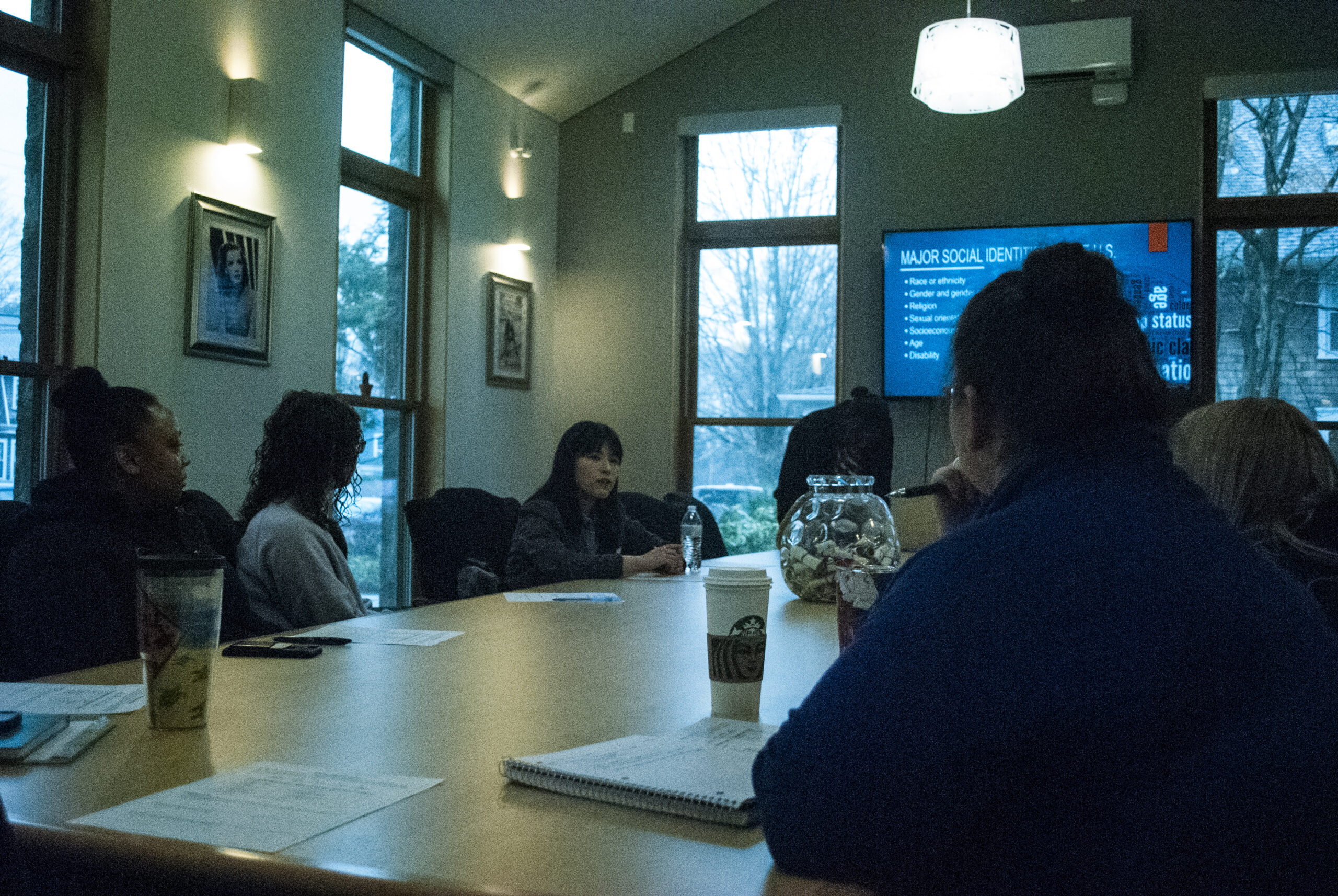Photo by James Singer.
This semester marks the three-year-anniversary of the University of Rhode Island’s Diversity and Inclusion Badge Program, which trains graduate students for the competitive job market.
Dr. Alycia Mosley Austin, director of graduate recruitment and diversity initiatives, had observed, through working on search committees, that students entering the workforce had trouble answering, whether on job applications or in interviews, questions related to experience working with diverse groups.
“I didn’t want our URI graduates to be the ones going on job interviews who couldn’t address the diversity question,” Mosley Austin said.
She was also part of the University’s Academic Affairs Diversity Task Force which was working on the new general education program for undergraduate students which now includes outcome C3: develop and exercise diversity and inclusion responsibilities. Mosley Austin recognized that because of the more defined curriculum for graduate students and no space to have anything cut across all of the programs academically, workshops available for all graduate students would be effective.
Mosley Austin reached out to Dr. Joanna Ravello, director of community and organizational development in the office of community, equity and diversity, to handle the more administrative tasks related to the program. For the last three years, the two women have headed the program which now offers workshops in both the fall and spring semesters. To earn the Diversity and Inclusion Badge, students must attend five workshops throughout their time at URI, which 62 students have already earned.
“Every decision that is made, Dr. Mosley Austin is doing it,” Ravello said. “We have a really good working relationship and I think that’s part of why it’s successful.”
Ravello’s dream is for the program to keep expanding beyond the two of them. It would make the program be more sustainable, as they are running the program along with having other responsibilities. Her goal is to have the program become graduate-student governed and run, primarily by those focusing their studies on identity-based and social justice research.
“I wish that there would be a way that folks who want to present these topics, there would be means for them to do it with the graduate students in the Badge Program,” Ravello said. “In that way, not only are graduate students getting exposed to topics that they wouldn’t be ordinarily exposed to, but the graduate students actually doing the workshop would get feedback.”
One faculty member, Dr. Annemarie Vaccaro, a human and family developmental studies professor and the college student personnel graduate program director, is starting to spark this change through her Diversity Badge workshop. Her workshop focuses on conducting inclusive and socially-just research with human participants, which tends to be attended by students in education and social sciences.
“Too often, we don’t think about social justice and injustice in our research processes and how they can be embedded in that,” Vaccaro said. “I really try to work with graduate students, many of whom are working on theses and dissertations and doing research, about how to make sure that they ensure that their processes and products are socially just.”
This is just one of 17 programs offered solely to graduate students. Mosley Austin was conscious about potential power imbalances within workshops when creating the program, so she limited it to the graduate student population only. She also was very aware that there was a lack of diversity training for graduate students in their programs and wanted to make sure they were getting the training and attention they deserve to go into their careers.
“What I would want students to know is that having these competencies is going to make you better at your job whatever your job is,” Mosley Austin said. “It’s important to express how your role intersects with diversity and inclusion no matter what your profession is.”





